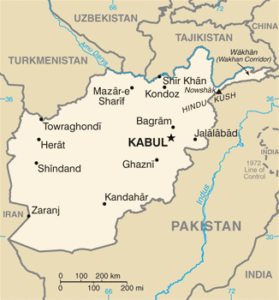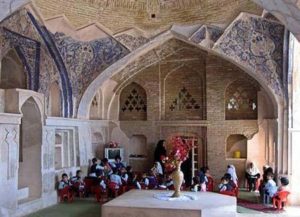 The first Jews arrived in Afghanistan 2,700 years ago, with historical records suggesting a continuous population since the 8th century. At its height in the 1000’s and 1100’s, the Jewish population of Afghanistan is estimated to have reached between 40,000 and 80,000 members. Many of them traded in leather and karakul (sheep pelt) and often traveled long distances between Afghanistan, Iran, India, and Central Asia.
The first Jews arrived in Afghanistan 2,700 years ago, with historical records suggesting a continuous population since the 8th century. At its height in the 1000’s and 1100’s, the Jewish population of Afghanistan is estimated to have reached between 40,000 and 80,000 members. Many of them traded in leather and karakul (sheep pelt) and often traveled long distances between Afghanistan, Iran, India, and Central Asia.
The Jewish population was decimated by the Mongol invasion of 1222. There was a brief revival in the 1500‘s when Jews once again became prominent in trade between Afghanistan, India, and the Persian Gulf region. However, the trade routes began to decline and most Afghan Jews became impoverished.
In 1839, Muslim authorities were forcibly converting Jews in Persia which resulted in thousands of Persian Jews fleeing to Afghanistan. This brought the Jewish population back up to its former glory of 40,000. The northwestern city of Herat, now the country’s third-largest city became the heart of this new Jewish community.
These numbers dwindled, from 5,000 by the middle of the 20th century to a few hundred by the time the Soviets invaded in 1979, with many relocating in Israel, America and Europe.
 The last rabbi left in 1987, and Zebulon Simantov says he is Afghanistan’s last Jew. Simintov, born in Turkmenistan, lives in the capital city of Kabul on the top floor of Afghanistan’s last functioning shul on Flower Street. He rents out the bottom floor to several businesses including his own, the Balkh Bastan cafe. He used to deal in carpets and antiquities until government officials confiscated his merchandise.
The last rabbi left in 1987, and Zebulon Simantov says he is Afghanistan’s last Jew. Simintov, born in Turkmenistan, lives in the capital city of Kabul on the top floor of Afghanistan’s last functioning shul on Flower Street. He rents out the bottom floor to several businesses including his own, the Balkh Bastan cafe. He used to deal in carpets and antiquities until government officials confiscated his merchandise.
Simintov’s family have all emigrated to Israel and he lives alone in the shul. The shul’s Torah scroll was stolen years ago by the Taliban and the shul is in disrepair. Simintov gets along quite well with his neighbors, all of whom who treat him respectfully.
Today there are four shuls standing in the city, two of which were converted to mosques, one of which is now a school, and the last of which, the Yu Aw shul, became an Islamic cultural center. The former Yu Aw shul still has Hebrew inscriptions on its walls and the remnants of a mikvah are still present. A nearby Jewish cemetery is owned by Arif Mosaee, an Afghan Jew whose family is buried there.